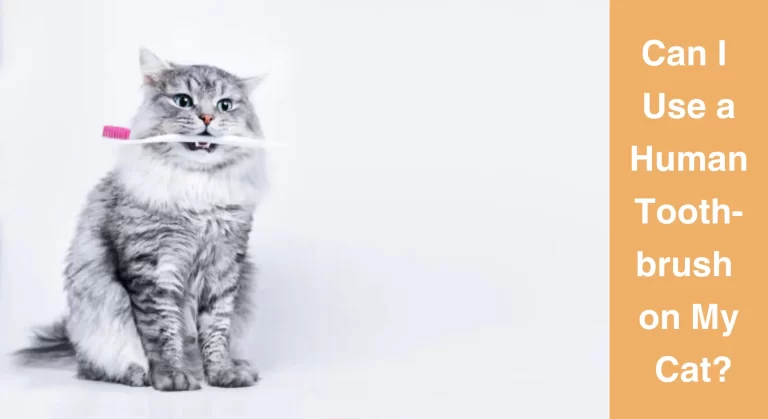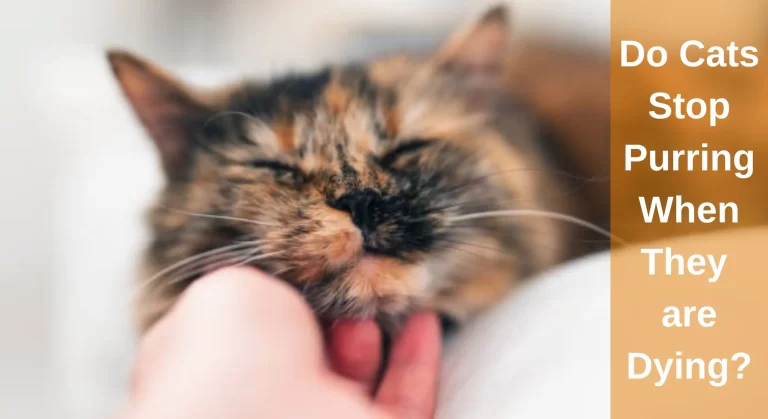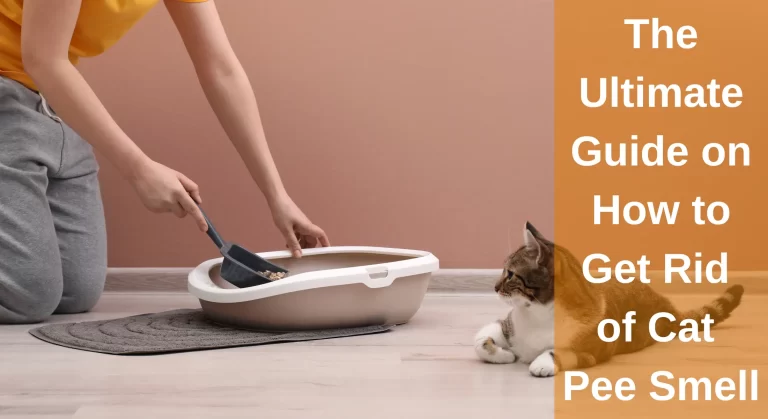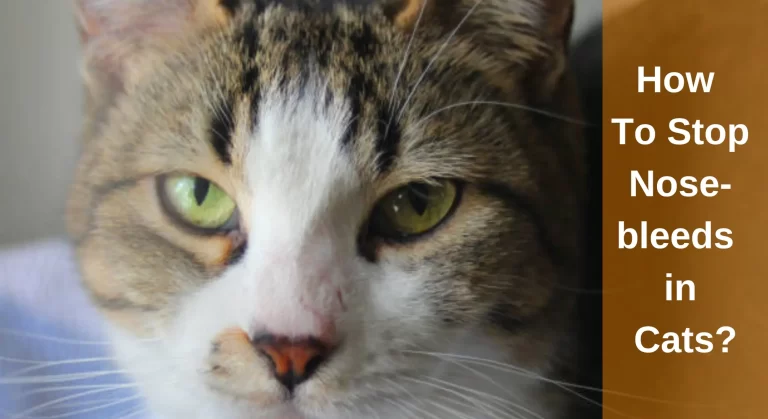My Cat Sounds Congested When Breathing: Noisy Breathing in Cats
Typically, cats don’t make any noise when they breathe. While the odd sneeze or purr is quite natural, noisy or obstructed breathing might be concerning. Don’t panic immediately; not all breathing obstructions indicate life-threatening conditions.
Why my cat sounds congested when breathing? Very loud breathing noises frequently ensue when air passes via abnormally restricted airways and encounters resistance due to partial obstruction of certain regions. The pharynx, the voice box, the back of the neck, or the windpipe may all be the source. This kind of abnormal breathing noise may be heard without a stethoscope.
This article may provide some causes as well as solutions if you’re wondering why your cat’s breathing sounds clogged.

What is Noisy Breathing?
Noisy breathing refers to abnormal sounds produced during breathing, such as wheezing, coughing, or snoring. It can occur during both inhalation and exhalation.
- Noisy Inhalation (Stertor): Loud, low-pitched breathing that often occurs when inhaling and is generally caused by a nose- or throat-related issue.
- Nois exhalation (Stridor): Noisy, loud breathing that usually results from a laryngeal or respiratory tract blockage
Why Does My Cat Sound Congested When Breathing?
Cats can exhibit noisy breathing through either their inhale or exhale. Depending on the source of the issue, you can hear a high-pitched or deep, crowded sound with each breath. We can now more thoroughly analyze the various reasons for these airway obstructions since we know what noisy breathing is.
As you’ll see, breathing problems are linked to various illnesses. Go over each one to better understand your cat’s symptoms and their causes.
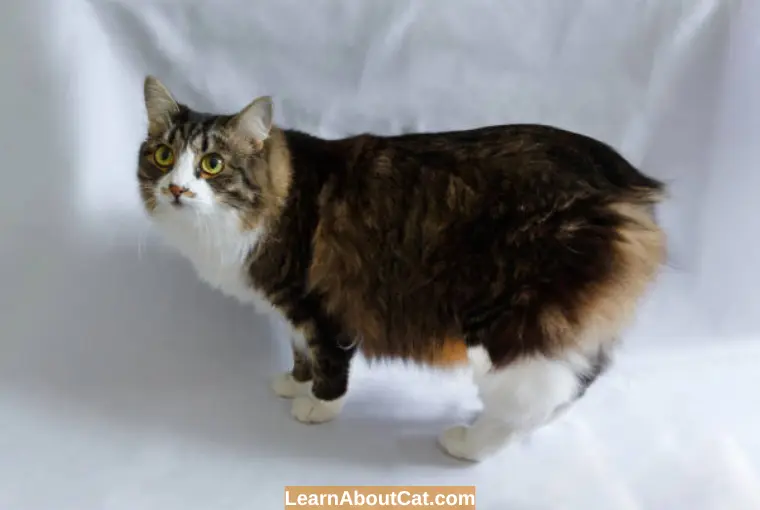
1. Allergies
Just like humans, cats can be allergic to a wide range of different things. If your cat is exposed to something that triggers an allergic reaction, it can cause symptoms like sneezing, coughing, and congestion.
Common cat allergens include pollen, dust mites, and certain types of food. If you suspect that your cat has allergies, your veterinarian can help you determine the cause and develop a treatment plan.
2. Brachycephalic Airway Obstruction
Unless anything is wrong, most cats won’t make an audible noise when they breathe. The term “brachycephalic obstructive airway syndrome” refers to various abnormalities (BOAS).
Such abnormalities are found in Persian cats, Himalayans, and exotic shorthair cats. In conditions known as stenotic nares, these features include:
- Pinched and constricted nostrils
- A long soft palate that extends down the neck,
- A hypoplastic trachea with constrained airways due to the absence of cartilage rings.
- The everted laryngeal saccules expand into the windpipe as the laryngeal tissue does.
Your veterinarian should examine a flat-faced cat experiencing breathing difficulties for diagnosis. If the diagnosis is BOAS, your veterinarian may recommend medication or surgery.
3. A Persistently Blocked Lung Disease
Another possible cause of cat congestion is blocked lung disease. This condition can occur when a foreign object or tumor obstructs the air passages in a cat’s lungs, preventing air from flowing freely.
These irritants are the same ones that veterinarians think cause asthma, including allergies, cigarette smoke, and other airborne pollutants. There are many symptoms associated with blocked lung disease, including:
- Coughing
- Wheezing
- Difficulty breathing
Additionally, older cats are more susceptible to the condition than younger ones.
4. Asthma
Feline asthma is a respiratory condition that can cause congestion in cats. It’s caused by the inflammation of the airways, making it difficult for cats to breathe.
Asthma can be triggered by stress, dust, or even cigarette smoke. As a result, cats with asthma might use their lips for breathing to fill their lungs with more air.
Clinical asthma signs in cats include rapid breathing, coughing, wheezing, and congestion.
If you suspect your cat has asthma, seeking veterinary care is important. Several treatment options are available, including medications that can help reduce inflammation and open up the airways.
5. Tumours and Cancer
Tumour development is possible anywhere on a cat’s body, including the airways. Tumours in the voice box, sinuses, lungs, windpipe, or back of the throat are a few examples.
In any situation, airway tumours in cats are quite uncommon. The symptoms may vary depending on precisely where in the airways the tumour is forming, for example:
- Nose & Sinuses: Sneezing, snoring, and nose mucus containing blood and pus are signs of tumours developing in the nasal channel. Depending on where the growth is, there may be facial deformities, eye bulging, and convulsions.
- Larynx and Trachea: A more common indication of the larynx and trachea is laboured breathing, especially after activity. Coughing, hoarseness, and loud, high-pitched breathing are typical clinical signs.
- Lungs: When tumours form in the lungs, general illness symptoms, including reduced appetite, weight loss, and weariness, are more common. Breathing becomes laboured and noisy when fluid accumulates around the lungs, which is usually related to lung tumours.
6. Foreign Bodies in the Trachea
One reason why your cat’s breathing sounds congested might be a foreign item clogging its airways. They could, however, sometimes breathe in something foreign that lodges itself in their trachea.
The blockage in the airways might cause breathing to become noisy as air rushes past the foreign body. Additionally, it will make it more difficult for cats to breathe, which might lead to irregular or excessive breathing when they are resting. Foreign items might also bring on your cat’s purring constriction.
7. Virulent Upper Respiratory Infections
Congestion and difficulty breathing are two signs of feline upper respiratory infections (URIs). If your cat has a URI, the body will start an immune reaction. The upper airways become inflamed and overproduce mucus; as a result, further blocking the channels. These factors combine to give your cat the appearance of having difficulty breathing.
Other common symptoms in cats, besides noisy breathing, include the following:
- Sneeze and coughing
- Discharge from the nose and eyes
- Illnesses of the mouth or nose
- Either a stuffy nose or congested sinus
Find Out Here: Does My Cat Have Allergies or a Cold?
8. Accumulation of Fluid
Occasionally, cats may sound congested when breathing because of a buildup of fluid in or around their lungs. The collection of fluid inside the lungs’ alveoli is termed pulmonary edema, whereas the collection of fluid in the sac surrounding the lungs is called pleural effusion.
Regardless of the cause, the fluid prevents the cat’s lungs from expanding properly. Cats have difficulty breathing due to this, and their bodies cannot get enough oxygen as a result. Medical emergencies arise when an accumulation of fluid in the lungs impairs breathing.
The following symptoms may indicate fluid accumulation in the lungs:
- Open mouth breathing
- Wheezing
- Coughing
- Runny nose
- Breathing difficulties (Heavy and Rapid)
- Lack of appetite
- Lethargy
Get your cat to the vet as soon as possible if you notice any of these combined symptoms. The vet can stabilize your cat and help them breathe through oxygen therapy. The vet will then remove the fluid from the lungs so they can breathe normally again.
9. Feline Infectious Peritonitis
A viral disease affecting cats is known as feline infectious peritonitis. While no effective treatment is currently legally available for FIP, the disease can cause various symptoms, including respiratory problems.
If your cat is diagnosed with FIP, your veterinarian may recommend treatment to manage their symptoms and improve their quality of life.
10. Congestive Heart Failure
Congestive heart failure is a condition in which the heart cannot pump blood effectively, leading to a buildup of fluid in the lungs and other parts of the body.
Cats with congestive heart failure may experience coughing, difficulty breathing, and wheezing. An immediate veterinary visit is necessary to treat this condition.
11. Chronic Obstructive Pulmonary Disease (COPD)
Chronic obstructive pulmonary disease (COPD) is one of the common causes of cat congestion. This condition is characterized by inflammation and narrowing of the airways in a cat’s lungs, making it difficult for them to breathe.
In addition to congestion, cats with COPD may also experience coughing, wheezing, and exercise intolerance.
12. Hyperthyroidism
Cats with hyperthyroidism produce too much thyroid hormone from their thyroid glands. It’s a hormonal disorder that can affect various body functions. Congestion, coughing, and breathing difficulties are some of the symptoms associated with this.
In addition to respiratory symptoms, cats with hyperthyroidism may also experience weight loss, increased appetite, and restlessness.
13. Nasal Polyps
The nasal passages of cats may be filled with growths called nasal polyps. While nasal polyps are usually benign, they can cause symptoms such as sneezing, congestion, and difficulty breathing. Treatment for nasal polyps typically involves surgical removal of the growths.
14. Dental Problems
Dental problems such as periodontal disease or a tooth abscess can also cause cat congestion. This is because the roots of the teeth are close to the nasal passages, and infections in the mouth can spread to the sinuses.
If your cat has dental problems, your veterinarian may recommend dental cleaning or extraction of the affected teeth.
15. Obesity
Obesity is a common health problem among cats, and it can also contribute to congestion and respiratory issues. When a cat is overweight, the excess body fat can put pressure on its lungs and air passages, making it harder for them to breathe.
In addition to congestion, obese cats may also experience coughing, wheezing, and exercise intolerance.
16. Heartworm Disease
Heartworm disease is a serious condition that is caused by a parasitic worm that lives in the heart and lungs. Despite the fact that heartworm disease more commonly affects dogs, cats are also susceptible to this disease.
There are several symptoms of heartworm disease in cats, including coughing, difficulty breathing, and weight loss.
Some Other Causes of Noisy Breathing in Cats
Many conditions and ailments, including infections, foreign objects, and congenital defects, can cause cats to breathe loudly. Stridor and stertor can both be used to help identify the problem because they both affect different parts of the airways.
However, several underlying causes may contribute to any noisy breathing. The following are typical reasons why cats breathe loudly:
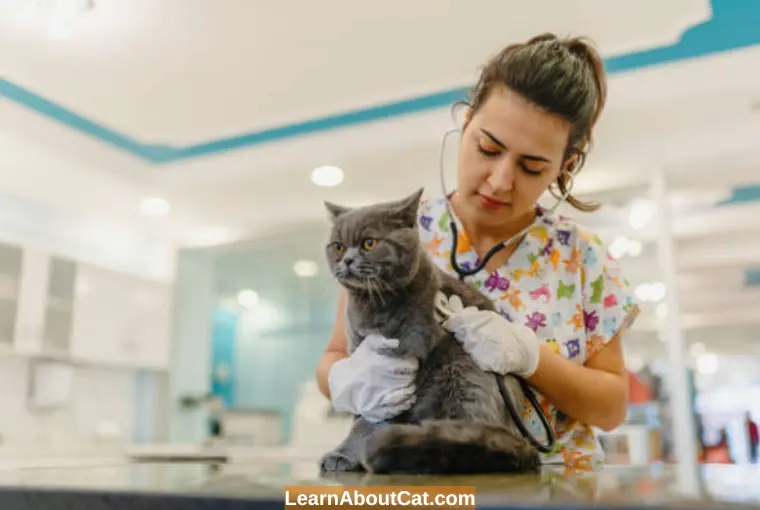
- Laryngitis
- Trauma
- Bleeding problems
- Throat numbness
- Acromegaly
- Unfavorable effects of sedation or anesthesia
- Strong emotional responses, such as fear or concern, are referred to as shock.
- Electrocution
- Birth flaw heart disease
- Poisoning
Noisy Breathing Symptoms in Cats
The primary indicator of noisy breathing in cats is audible breathing. The noise might range from high-pitched whistling or squeaking to low-pitched snoring. It’s also possible that there are breathing modifications or breathing issues.
The presence of other symptoms, in addition to the noisy breathing, might vary depending on the underlying cause of the illness. The associated symptoms might develop into something very serious, possibly fatal.
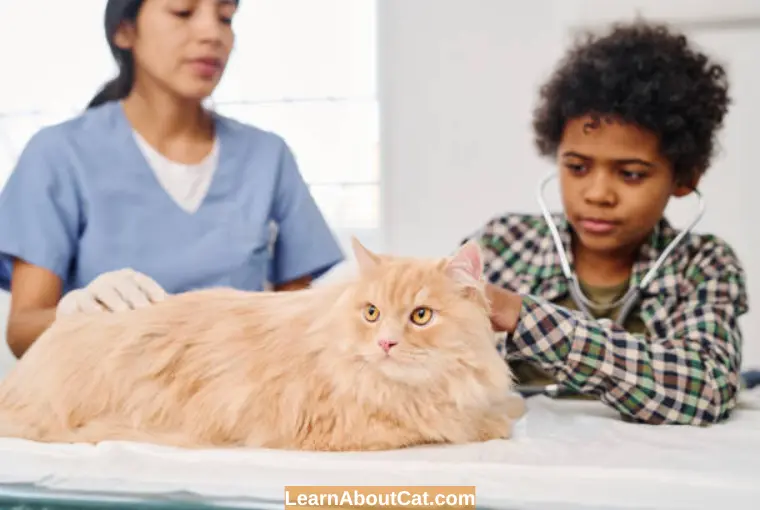
Symptoms of Congestion in Cats include:
- Grating breathing sounds
- Having trouble breathing
- Lips open
- wheezing
- Sneezing
- Runny nose
- Rapid breathing or panting with flaring turbinates during breathing
- Breathing sounds that squeak during coughing or sneezing or while stretching out the neck.
- Even while awake, snoring can be heard.
- Voice changes
- Hoarseness
- Not vocalizing or meowing
- Exercise intolerance
- Weakness, a cough that produces mucous
- Pain-related nasal dribbling vocalizations, pale mucous surfaces
- Alterations in behaviour
- Restlessness
- Fever
Some of the Important Symptoms include the following:
- Sluggishness and Difficulty breathing
- Lethargy
- Fainting or falling Seizures
- Coma
What To Do When My Cat Sounds Congested When Breathing? Home Remedies
While taking your cat to the veterinarian is the best course of action if they sound congested when breathing, you can do a few things at home to help alleviate their symptoms.
- Humidify the air: Adding moisture to the air can help soothe your cat’s respiratory system. You might want to consider using a humidifier or keeping a bowl of water near your cat’s bed or living area.
- Steam therapy: Another way to add moisture to the air is to give your cat a steam therapy session. You can do this by running a hot shower and allowing your cat to sit in the bathroom for 10-15 minutes.
- Cleanliness: Keeping your cat’s living area clean can help reduce the risk of respiratory issues. Regularly clean their litter box and bedding, and vacuum and dust the area to remove any allergens.
- Encourage hydration: Encouraging your cat to drink more water can help thin out mucus and make it easier for them to breathe. Consider adding wet food or water to their dry food to increase their fluid intake.
- Nose drops: If your vet approves, you can use saline nose drops to help loosen your cat’s congestion. Administering them can be tricky, so make sure to follow your vet’s instructions carefully.
It’s important to note that while these home remedies can provide some relief, they are not a substitute for veterinary care. To make sure your cat isn’t suffering from an illness that needs medical attention, take them to a vet if the symptoms persist or worsen.
When Should You Take Your Cat To The Vet? Diagnosis
As you can see, cats who have trouble breathing normally don’t feel good. It may be as simple as getting something stuck in their throat. Heavy breathing is a result of COPD, cancer, etc.
Consequently, as soon as the cat starts to sound congested when breathing, make an appointment with the doctor.
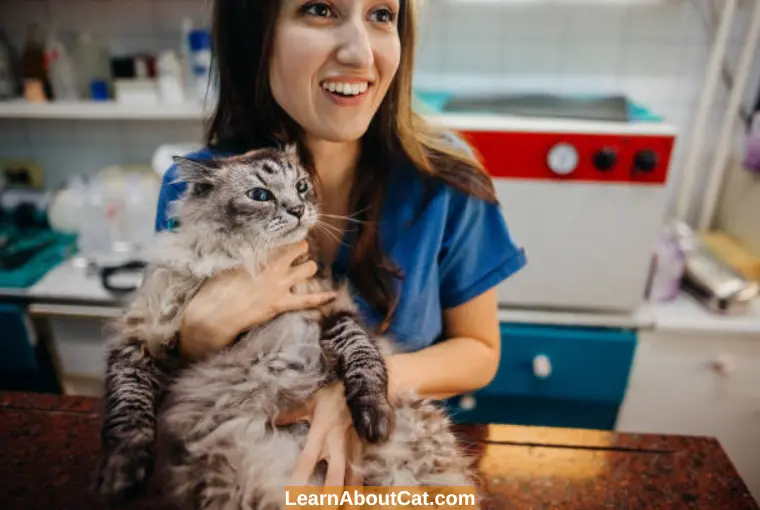
Your veterinarian will conduct a comprehensive physical examination and analyze blood and urine samples to determine the cause of noisy breathing.
The quantity of oxygen in your pet’s blood will be determined using either blood gas analysis or pulse oximetry.
If respiratory difficulties accompany the noisy breathing or if blood oxygen levels are low, oxygen therapy may be administered to stabilise the cat while different diagnostic tests are carried out to identify the underlying source of the issue.
Regular laboratory blood tests and urinalysis on your pet’s body fluids samples or x-rays will be performed. Then the vet will further discuss causes, symptoms, preventions, and treatments as well.
You must follow the suggested treatment schedule to assist your cat in recovering from its illness once you return home. If surgery was performed to remove the obstruction, you must provide care for your cat at home until it is fully healed.
Treatment Options for Congestion in Cats
The main objective of treating loud-breathing cats is to deal with the underlying issue. In case an abnormal tissue growth is in the respiratory system, then surgery is performed.
If the noise source is unknown and it has no detrimental impact on the operation of the respiratory system, treatment may not be required. Potential treatments for cats with noisy breathing include the following:
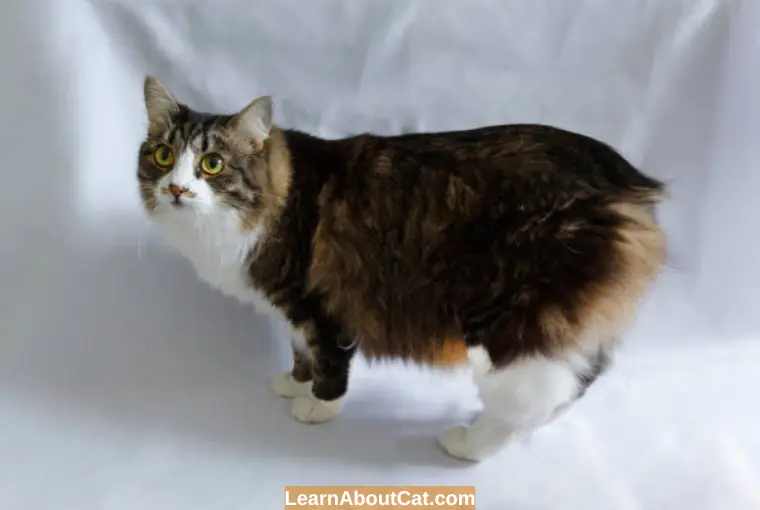
- Steroids: Asthma is the most common disease treated with this family of drugs. Steroids have a considerable risk of side effects; hence they are frequently not advised for cats with weakened immune systems.
- Diuretics: Diuretics will help the body remove the fluid and increase oxygenation if the fluid is present. Diuretics could be necessary for conditions like heart failure.
- Using Oxygen: By supplying oxygen, you can promote normal blood oxygen levels and respiratory function. A system of tubes or an oxygen cage might be employed to supply
- oxygen.
- Bronchodilators: Bronchodilators are medications that help relax the airways, making breathing easier for cats. They are often prescribed for cats with feline asthma.
- Fluid Therapy: Intravenous (IV) fluid treatment may help pets with noisy breathing, especially if dehydration or mucus are the root causes. Thin the mucus by drinking fluids to increase the power of your cough. This treatment is frequently only provided to inpatients and is seen as a low-risk technique.
- Antihistamines: Antihistamines are a group of drugs that are used for allergic reactions. This helps a cat breathe but should be used with vet advice as the proper dosage is necessary.
- Operative Intervention: Surgery can be necessary if a tumour, injury, or foreign object obstructs an airway and makes breathing noisy. Surgery has a medium risk of having unfavourable results. If surgery is required to reduce the likelihood of issues, your cat will likely spend some time in a hospital.
- Antibiotics: Noisy Breathing is usually a symptom of respiratory and other physical ailments. Antibiotics assist the immune system in warding off sickness and removing the infection. Correct dosing is essential for reducing the likelihood of side effects.
How Can I Prevent My Cat From Developing Noisy Breathing?
Preventing cats with underlying conditions that are incurable from engaging in strenuous activities. Your veterinarian will give guidance on this during the session.

Prevention of Congestion in Cats: The following are some tips on how to prevent congestion in cats:
- Keep your home free from dust and other allergens.
- Avoid exposing your cat to cigarette smoke.
- Consider purchasing a humidifier to help reduce allergies and allergens in your home. Even if they are not the real cause of the breathing obstruction, these irritants can worsen it and induce airway inflammation.
- Keep your cat’s vaccinations up to date to prevent respiratory infections.
- Feed your cat a healthy diet to boost its immune system.
- Keeping your home’s air warm and humid. As a result, airflow through the airways has reduced resistance.
- Any early signs that your cat isn’t feeling well should be kept an eye out for. Given that cats are skilled at masking pain, understanding how sick cats sleep may aid in spotting the first indications of disease.
- A healthy breathing rate is between 20-30 breaths in a single minute. Make sure your cat’s respiratory rate is normal by checking it periodically.
Cats with Asthma and Other Breathing Problems
Some of the most common causes of the respiratory disorders we see in cats include the following:
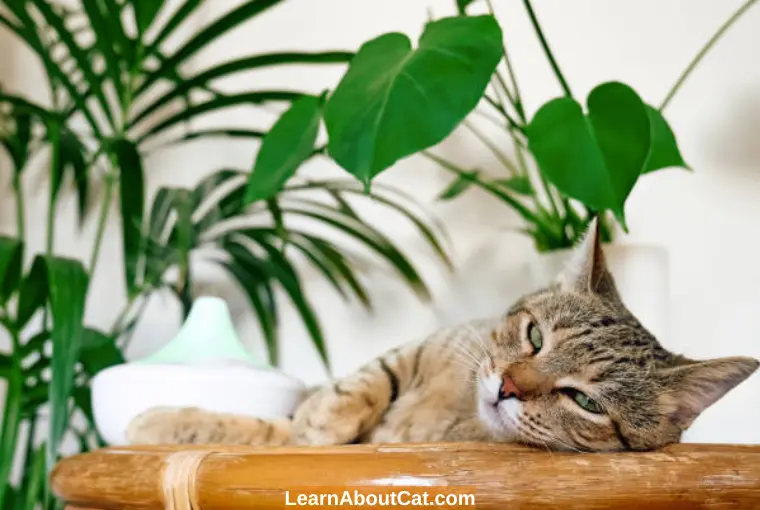
- Feline Asthma – Like people with asthma, certain cats may have swelling and constriction of their lower airways due to exposure to allergens, leading to wheezing and breathing issues.
- Sneezing, Congestion, and Watery Eyes are just a few of the upper respiratory symptoms that can be present in cats with various bacterial and viral infections. We may observe cats, for this reason, the most frequently.
- Laryngitis: An infection, trauma, or even a tumour can cause laryngitis, an inflammation of the back of the throat that impairs breathing.
- Obesity – Particularly in brachycephalic breeds like Persians, animals with perhaps already-narrowed airways may be more susceptible to increased respiratory noise and even apnea as a result of weight gain.
- Nasopharyngeal polyp: Any growth on the back of the throat that makes noise in the lungs is referred to as a nasopharyngeal polyp. In cats, they are frequently benign nasopharyngeal polyps.
- Lung Disease – A lung disease, such as pneumonia, can undoubtedly lead to laboured breathing.
- Unwanted Parasite Infections can damage the lungs and make breathing difficult, such as feline heartworms and lungworms.
- Cardiac Problems – Pulmonary fluid is formed in hypertrophic cardiomyopathy or congenital heart disorder. In addition to sometimes coughing or retching, this may cause wheezing or difficulty breathing.
Frequently Asked Questions
How can I assist my cat, that has respiratory problems?
Using a humidifier or vaporizer in your home may raise the humidity and make your cat feel better when they are congested. You may gently clean your cat’s nose with a warm, moist towel if they have a congested nose. Apply a saline solution with gauze pads to dry out and calm your cat’s wet eyes.
How can I help my cat naturally decongest?
While you take a hot shower, keep your cat with you in the bathroom. Nasal congestion may be relieved by the humidity. Use a humidifier to reduce airway irritation if the air in your home is dry (during winter, for instance). While your cat is recovering, lessen its stress.
Can congestion in cats be contagious?
Congestion itself is not contagious, but the underlying infection or virus that causes it can be.
Can congestion in cats go away on its own?
Congestion can go away on its own if it’s caused by a mild infection or allergy. However, if it’s caused by a more severe condition, such as heart disease or a tumor, it will require medical treatment.
How can I tell if my cat’s congestion is serious?
If your cat’s congestion is accompanied by other symptoms, such as breathing difficulties or lack of appetite, it could be a sign of a more serious underlying condition and should be evaluated by a veterinarian.
Can I give my cat over-the-counter decongestants?
No, over-the-counter decongestants are not safe for cats and can cause adverse reactions. Only use medications prescribed by your veterinarian.
Is noisy breathing in cats always a sign of a serious health issue?
No, noisy breathing can occur for mild reasons such as temporary respiratory tract irritation. Nonetheless, if the symptom persists or is accompanied by other symptoms, there could be a more serious underlying cause.
Can congestion in cats be prevented?
While it may not always be possible to prevent congestion in cats, taking measures to reduce exposure to allergens and irritants, keeping vaccinations up to date, and feeding your cat a healthy diet can help reduce the risk of congestion.
Final Words!
If a cat sounds congested and is breathing noisily, it’s time to get to the doctor. Probably, breathing issues arise because of underlying medical conditions. Although this list is not exhaustive, the choices listed above are all the most likely ones.
Therefore, it’s crucial to handle any breathing anomalies properly. If you follow the recommended therapeutic plan and heed my preventative suggestions, your cat’s breathing should get calmer fairly fast.
Who is Isabella?
My name is Isabella, and I am a dedicated and knowledgeable cat enthusiast. With years of experience caring for cats and a deep love for felines, I made a mission to help other cat lovers navigate the challenges of cat ownership.

